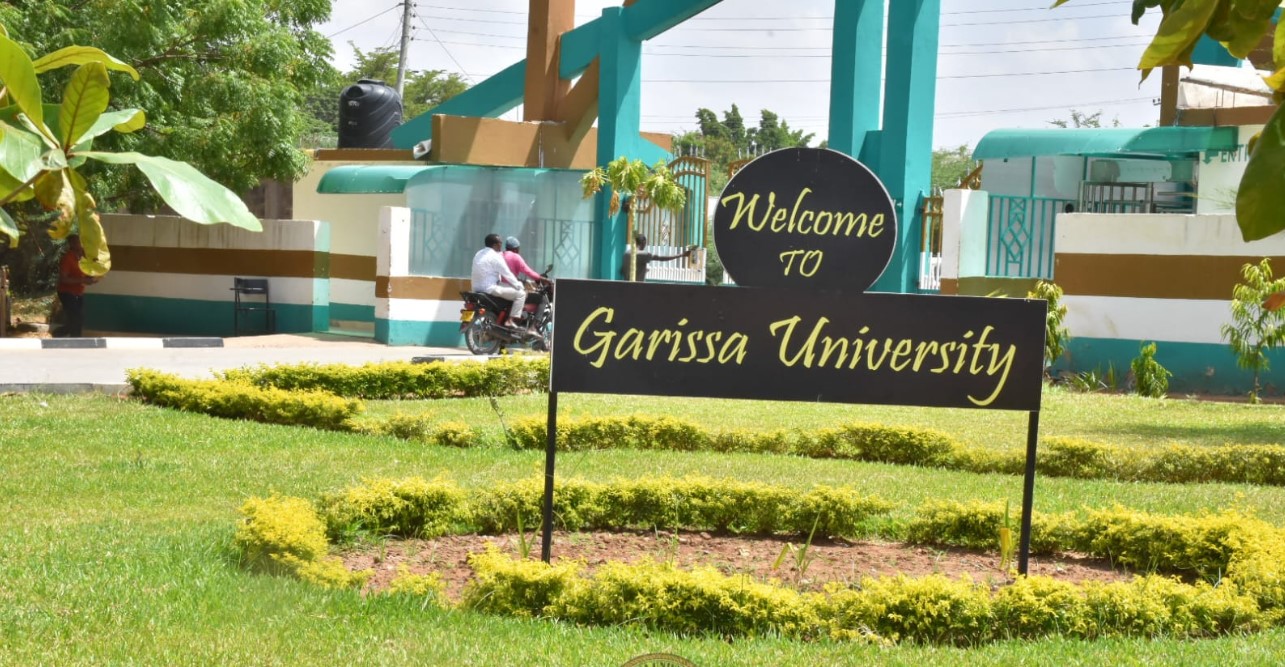Garissa University audit exposes fees collection irregularities, leadership gaps

The report criticised the university for using mobile money platforms to collect tuition fees, a practice not approved by its Fee Policy of 2018.
Garissa University has come under sharp scrutiny following a recent audit report by Auditor-General Nancy Gathungu, which flagged several irregularities in its financial and administrative operations.
The report criticised the university for using mobile money platforms to collect tuition fees, a practice not approved by its Fee Policy of 2018.
More To Read
- Audit flags leadership vacuum at Garissa University since 2022
- Westgate attack: The day Kenya’s terror fight became a global concern
- Garissa launches Jukwaa la Wasomi to boost security in higher learning institutions
- Garissa University launches community policing initiative to boost security and prevent extremism
- Lessons from Garissa University terror attack, 10 years on
- DPP wins bid to present forensic evidence in Dusit D2 terror attack trial
The policy requires students to pay fees through designated bank accounts.
"The regularity of mobile money as a mode of receiving revenue could not be confirmed," Gathungu stated.
The audit, which reviewed the university's books of accounts for the year ending June 30, 2023, revealed that the institution had not revised its fee policy to formally allow mobile money payments.
Despite being labelled as "convenient", this method was deemed non-compliant with the existing regulations.
Six years without a vice-chancellor
The audit also shed light on Garissa University's prolonged leadership vacuum.
Since receiving its charter to operate as a full-fledged university on October 23, 2017, the institution has been functioning without a substantive vice-chancellor.
Instead, the Cabinet Secretary for Education has been appointing acting vice-chancellors on six-month renewable contracts.
"This was in contravention of Section 35 of the Universities Act, 2012," Gathungu noted, adding that the lack of a permanent vice-chancellor hindered proper leadership and accountability at the institution.
The university had advertised the positions of vice-chancellor and deputy vice-chancellors in 2019, but the recruitment process was halted by court orders, leaving the matter unresolved to date.
The report also revealed that deputy vice-chancellor positions had not been substantively filled.
In March 2024, Garissa University reopened applications for the vice-chancellor post, conducting interviews in July.
Osman Warfa was appointed as vice-chancellor last month, but his appointment has faced resistance from some quarters.
Questionable payments
The audit further highlighted financial irregularities, including the payment of over Sh2.4 million in acting allowances to the acting vice-chancellor and acting deputy vice-chancellor over a period of three years.
This violated the Public Service Human Resource Policies and Procedures, 2016, which limits acting allowances to a maximum of six months.
The university was also flagged for weak payroll controls, with cases of employees sharing tax PINs and identity card numbers.
"The effectiveness of payroll management controls could not be confirmed," the report stated.
The report also noted that the university council was not properly constituted. A council member's position had been vacant since November 8, 2022, after the previous holder's term expired.
The Cabinet Secretary for Education had yet to appoint a replacement at the time of the audit, further compounding governance issues at the institution.
The Auditor-General has recommended that the Cabinet Secretary for Education address these issues urgently.
Gathungu noted the need for compliance with legal frameworks, particularly concerning leadership appointments and financial management practices.
Top Stories Today













































